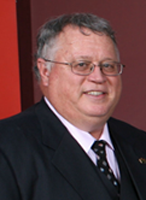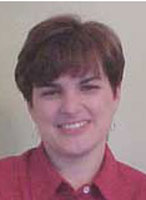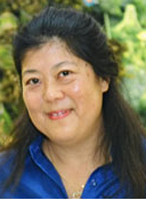Key Players

Dr. Shahron Williams van Rooij, Immersion 2010-2011 Project Manager
Dr. Williams van Rooij's expertise lies in the application of instructional design principles and learning theories to technology-enabled learning. Her publications have examined the use of open source software for academic and administrative applications, as well as the synergy of business-based disciplines such as project management and talent management with instructional design for online environments. Prior to joining George Mason University in 2007, Dr. Williams van Rooij worked for 10 years as Director of Product Marketing at Datatel, Inc., in Fairfax, VA, where she facilitated the engineering of new e-learning technology solutions. Her corporate experience included management positions in software marketing and market research in the financial and advertising industries. She also holds the Project Management Professional (PMP) credential from the Project Management Institute, Inc.

Dr. Michael M. Behrmann, Immersion 2010-2011 Project Sponsor
Dr. Michael M. Behrmann is a local, state, and national leader/innovator in special education. He has devoted 35 years to improving services and personnel preparation in the field of special education with his innovative work in teaching, research and service. In 2007 he recieved the ARC lifetime achievment award. In 2008 he was awarded the Council for Exceptional Children’s (CEC) J. Wallace Wallin Lifetime Achievement Award as well as the Technology and Media Divison Leadership Award. In 2009 Dr.Behrmann was honored with the State Council of Higher Education in Virginia (SCHEV) Outstanding Faculty Award for Teaching with Technology. In 2010 he was awarded the Outstanding Leadership by an Individual in the Field of Distance Learning by the United States Distance Learning Association.

Kristine Neuber, Immersion 2010-2011 Subject Matter Expert
Kristine Neuber serves as the Assistive Technology/Parent Information Technology Coordinator for the Graduate School of Education. She has been at Mason for more than 14 years in a variety of positions in the area of Assistive Technology. Her most notable accomplishment while working at George Mason has been working together with the Kellar Institute for Human DisAbilities, and Office of Equity and Diversity Services to develop the Assistive Technology Initiative (ATI). The ATI provides comprehensive assistive technology services for students and faculty with disabilities. She is currently acting as technical support on the Parent Portal Project with the Immersion Team in addition to teaching courses in the Assistive Technology Program and Managing the Assistive Technology Computer Lab. She completed her Bachelors of Science in Special Education at Southern Connecticut State University in 1992 with Certification in the areas of Early Childhood and Severe Disabilities. She received a Masters Degree in Assistive/Special Education Technology from George Mason University in 1997 and is currently pursuing her Ph.D. in Special Education with an emphasis on Disability Policy. Prior to coming to the Graduate School of Education, Kristine worked in the Public Schools as a Special Education Teacher for students who were visually impaired and also managed the Computer Electronic Accommodations Program Technology Evaluation Center (CAPTEC) for the Department of Defense.

Cherie Takemoto, Immersion 2010-2011 Subject Matter Expert
Cherie Takemoto, formerly the Executive Director of the Parent Educational Advocacy Training Center (PEATC), is currently finishing her PhD coursework at GMU as a New Leaders Now fellow in Early Childhood Education for Diverse Learners. Her secondary concentration is Instructional Design and she is a subject matter expert for the GMU IT immersion program tackling the issues related to opening a parent portal to the Virginia Department of Educations Training and Technical Assistance Center comprehensive online repository of information for special education success (T/TAC Online). A very exciting aspect of her work at PEATC was working with staff so that parents would have technological tools to boost their children’s chance for success in schools. Such projects included the IEP Checklist – the first iPhone app for special education; SPED: Own It webisodes for youth speaking to other youth; and LiteracyAccess Online.
